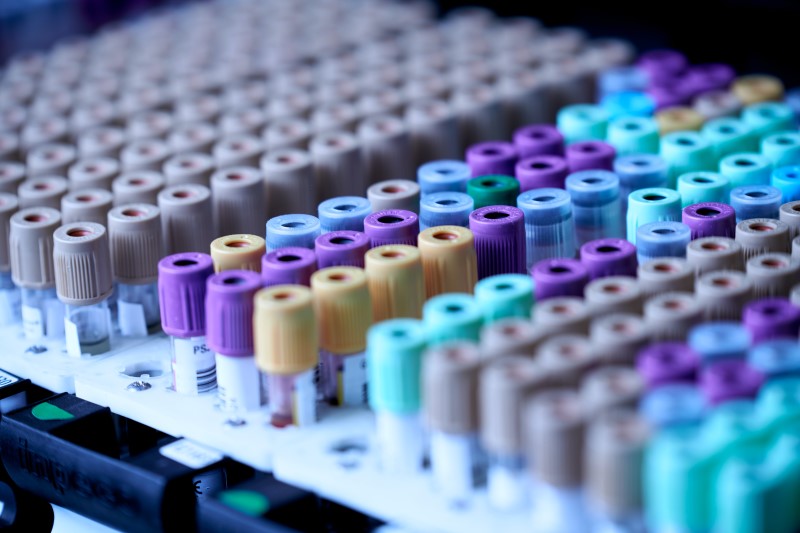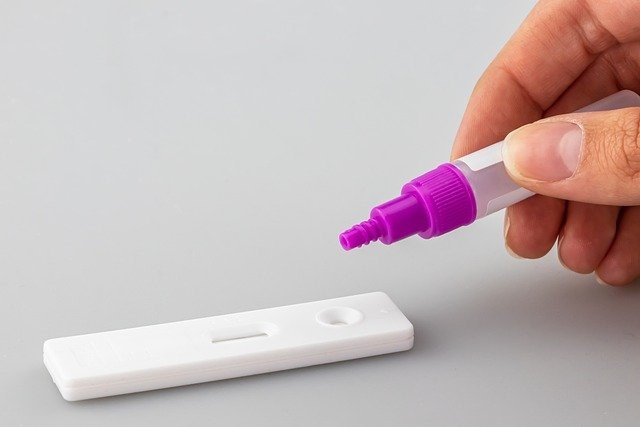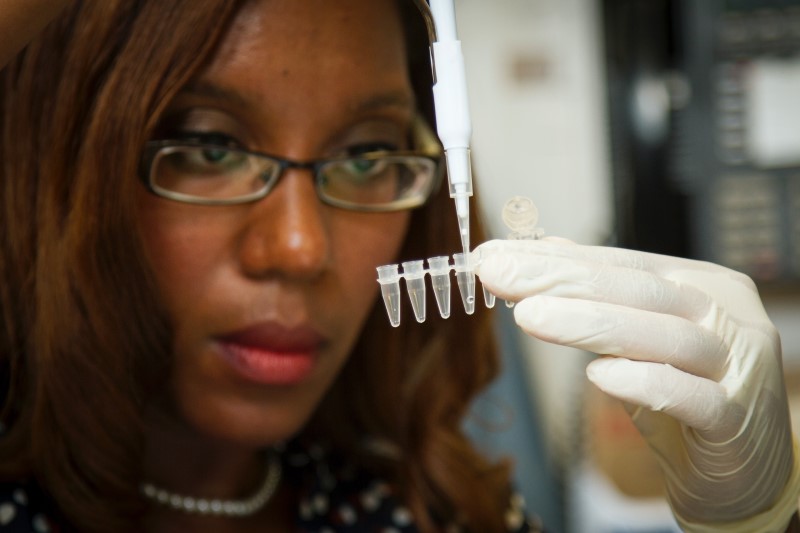There are several tests to determine if you have COVID-19. These tests identify SARS-CoV-2, the virus that causes COVID-19 in different ways. Antigen tests detect molecules present on the outer surface of the virus. RT-PCR looks for the presence of the virus’ genetic material. Antibody tests look to see if the immune system is producing antibodies against the virus. We’ll go over what each test does with the pros and cons of the different tests. This educational content will help you understand which test might be the right one for you.
Rapid antigen test
An antigen is a foreign particle that is present on the surface of a virus. When our body is exposed to viruses such as coronavirus, it activates defense mechanisms to target viral antigens. Our immune system makes antibodies that target antigens. In this case, the rapid antigen test cassette is pre-coated with the antibodies and when antigens present in our sample make contact with the antibodies, there is a color change on the cassette.
Antigen tests are ideal for people in the first few days of their symptoms. Another advantage is antigen tests don’t require a lab to get results and can be done anywhere. Antigen tests are great for screening. Antigen tests are rapid tests that get results in 10-30 minutes depending on the test device. Most antigen tests take 15 minutes to get results. One disadvantage of antigen tests is the tests have lower accuracy for people who do not have symptoms. If someone gets a positive result typically an RT-PCR test is done afterward to confirm the result.
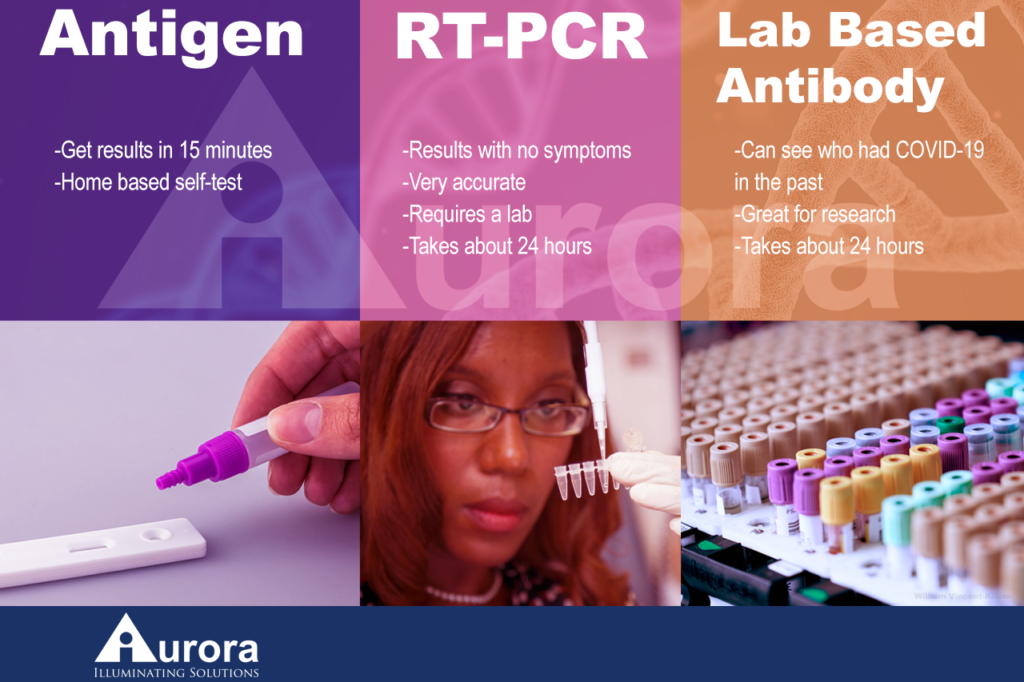
Molecular RT-PCR test
Nucleic acid tests, RT-PCR, and molecular tests are all the same names for this test. It looks to see if the genetic material inside the virus that causes COVID-19 is present. DNA and RNA are nucleic acids also called genetic material. PCR stands for polymerase chain reaction. Polymerase is an enzyme that can make copies of genetic material. Why do we need PCR?
Genetic material can be isolated in the lab, however, only a little bit can be isolated at a time from an animal, plant, or virus. PCR is used to make many copies of that genetic material so it can be examined. The RT in RT-PCR stands for reverse transcriptase. Reverse transcriptase reads a strand of RNA and makes a matching DNA copy. The virus that causes COVID-19 is an RNA virus. RT-PCR turns the RNA from the virus into DNA and then makes many copies of the DNA. We can then see if the virus RNA was present if PCR took place, there is a lot of DNA present. This DNA can later be sequenced, looking at each base pair of the nuclear acid and compared with other sequences of the virus. This is how we know the virus has changed and when new variants appear.
A pro of this test is it can be done anytime, even if the person is not experiencing symptoms. A con is that it requires a lab and special equipment to be done. Another disadvantage is it takes time for the polymerase to make many copies of DNA. Typically samples are collected at a clinic, then sent to a lab.
Lab Based Testing for Antibodies
Humans have an adaptive immune system. Our bodies produce antibodies to things our immune system perceives as a threat. If someone is producing antibodies to a virus then it means they have been exposed to it. Antibody tests look to see if your body is producing antibodies. It takes 1-2 weeks to produce antibodies after being infected. So if you were just infected, an antibody test may give a false-negative result. The antibody test may also give a positive result if the person being tested received a vaccine recently. The human body produces antibodies in response to the vaccine (this is how vaccines work). Antibody tests are normally only done by researchers and public health investigators. It is a great way to see where a virus was in a population in the past. However, it is not a good diagnostic tool.
Which test to take for COVID-19?
| Name of Test | Rapid Antigen Test | RT-PCR | Lab Based Antibody Test |
| Time to get results | 10-30 minutes | 24-72 Hours (1-3 days depending on the lab) | 24-72 Hours (1-3 days depending on the lab) |
| Stage the test should be taken | First 5 days of symptoms | Anytime | 3-4 weeks after symptoms onset |
| Diagnostic use | Yes ✔️ | Yes ✔️ | No ❌ |
| Location | Home based 🏠 self-test | Lab based 🧪 | Lab based 🧪 |
| Sample type | Swab, Blood, or Saliva | Swab, Blood, or Saliva | Blood |
| Used by | – General population – Medical professionals | – General population – Medical professionals | – Researchers |
Some of the antigen tests have the word ‘antibody’ on the packaging. This is stating they use antibodies to test for the antigen on the virus that causes COVID-19. It is still an rapid antigen test. Make sure you know what type of test you are buying.
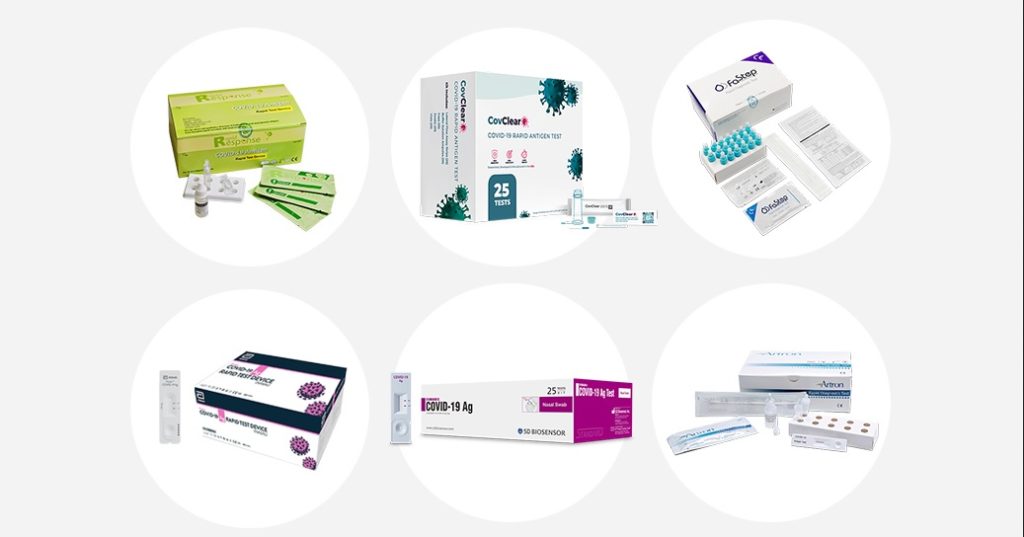
Check out our selection of rapid antigen tests.
Advantages of Rapid Antigen Test
- Get results in 15 minutes
- Can be done anywhere, including at home
- Can be used to diagnose COVID-19
Disadvantages of Rapid Antigen Test
- More accurate in the first 5 days of symptoms than testing with no symptoms
Advantages of RT-PCR Test
- Accurate even if the person has no symptoms
- Can be used to diagnose COVID-19
Disadvantages of RT-PCR Test
- Requires a lab, can not be done at home
- Typically takes 24-72 hours, 1-3 days depending on the lab
Advantages of Lab-Based Antibody Test
- Able to detect who previously had COVID-19
Disadvantages of RT-PCR Test
- Requires a lab. Can not be done at home
- Typically takes 24-72 hours, 1-3 days depending on the lab
- Can not be used to diagnose COVID-19
- Done 3-4 weeks after being infected
- Vaccination may cause a false positive, depending on the testing technique
Summary
There are different types of COVID-19 tests available. Each test detects the virus that causes COVID-19 in different ways. Antigen tests use antibodies to detect the virus antigen. Antigens are molecules on the virus coat protein that can be targeted by antibodies. A molecular test or RT-PCR makes many copies of the virus’ genetic material to see if it is present. The antibody test recognizes antibodies produced by the human immune system that are specific to the virus. Now you know about these different tests and which one might be the best one for you.
This is not medical advice. This is only for educational purposes.



